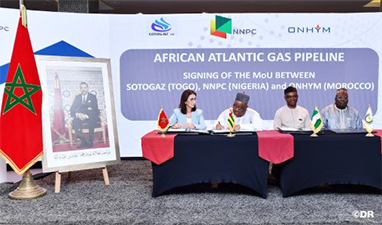The Nigeria-Morocco Gas Pipeline project has reached major developmental milestones, with recent Technical and Steering Committee meetings held in Rabat, Morocco, on July 10–11, 2025. The meetings form part of the project’s governance structure, in line with the Memoranda of Understanding (MoUs) signed between national oil companies participating in the cross-border initiative.
Organised by Morocco’s National Office of Hydrocarbons and Mines (ONHYM), the sessions focused on reviewing progress and evaluating next steps in this ambitious transcontinental energy infrastructure project.
According to an ONHYM statement, the project has already achieved significant technical, environmental, and institutional milestones. Notably, detailed engineering studies were completed in 2024, while survey and Environmental and Social Impact Assessment (ESIA) studies have been concluded for the northern segment. The southern section, stretching from Nigeria to Senegal, is currently undergoing survey and ESIA analysis.
The proposed pipeline is one of Africa’s largest gas infrastructure projects, designed to span 13 countries and transport up to 30 billion cubic meters of natural gas annually. It will be developed in phases, promoting regional energy integration and economic cooperation.
A Project Holding Company will be established to manage funding and oversee the construction phase. It will supervise three Special Purpose Vehicles (SPVs), each responsible for developing a distinct segment of the pipeline.
The meetings reaffirmed stakeholder commitment to the timely execution of the project, which is seen as a strategic priority for energy security, regional cooperation, and sustainable development across West Africa and beyond.















